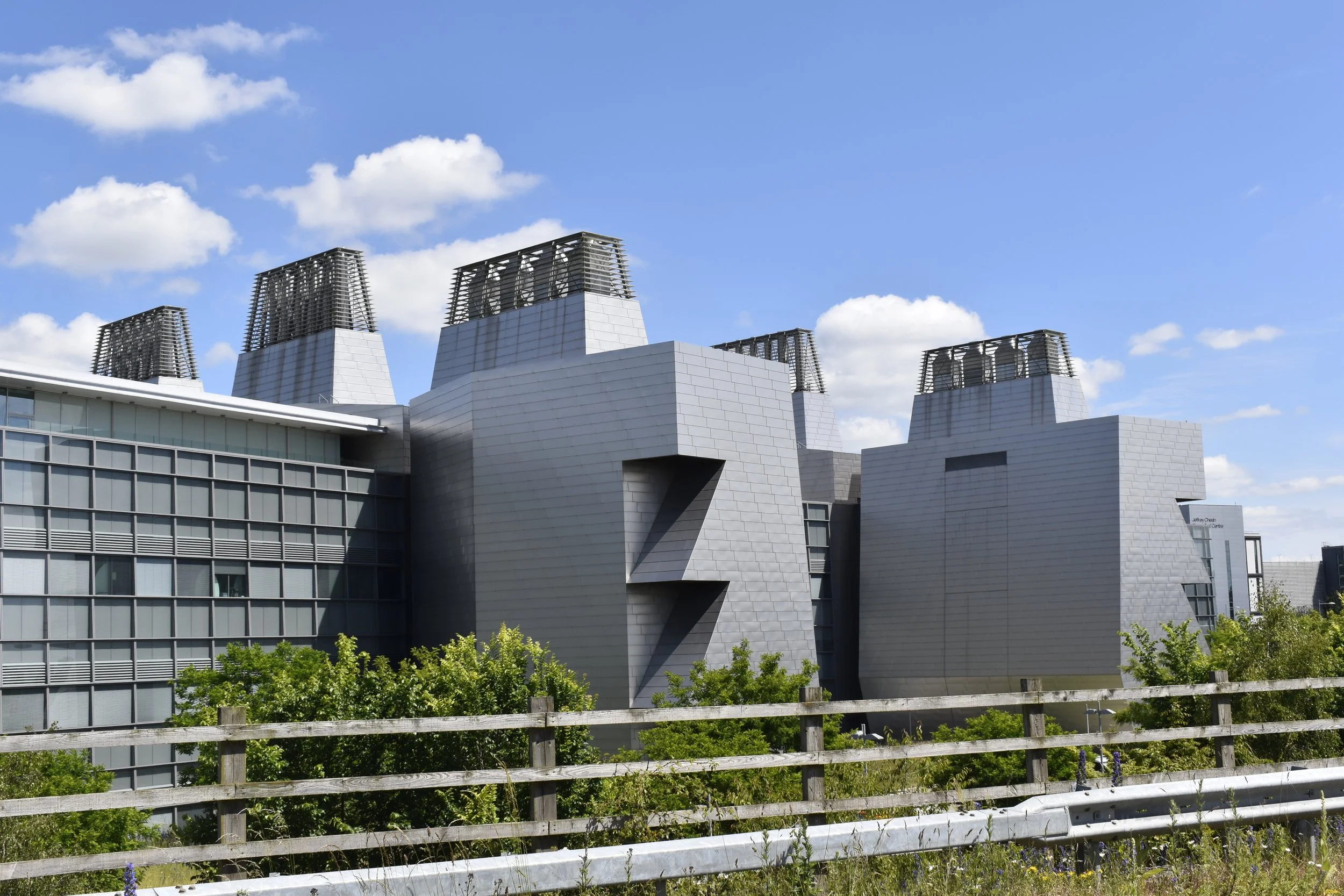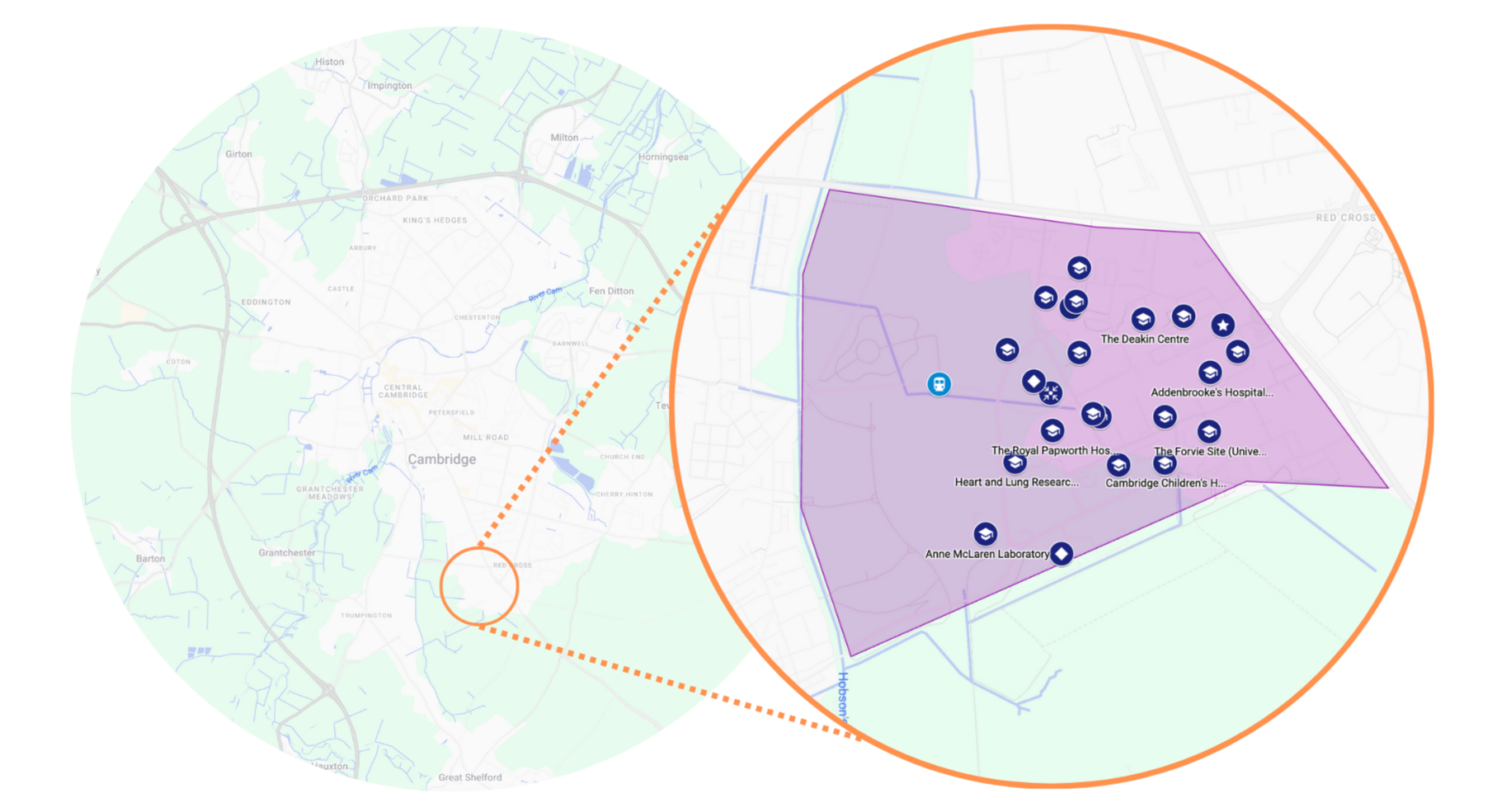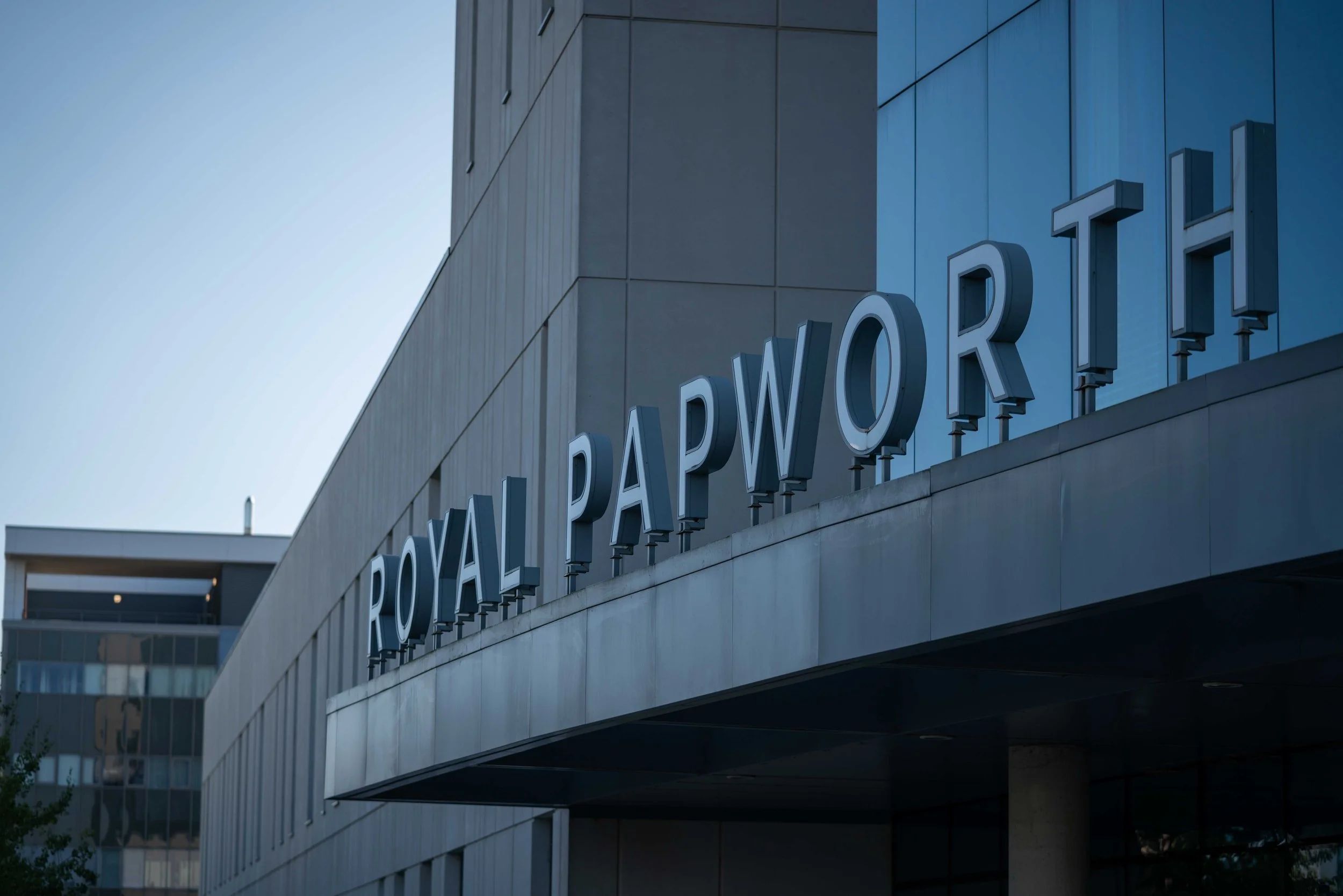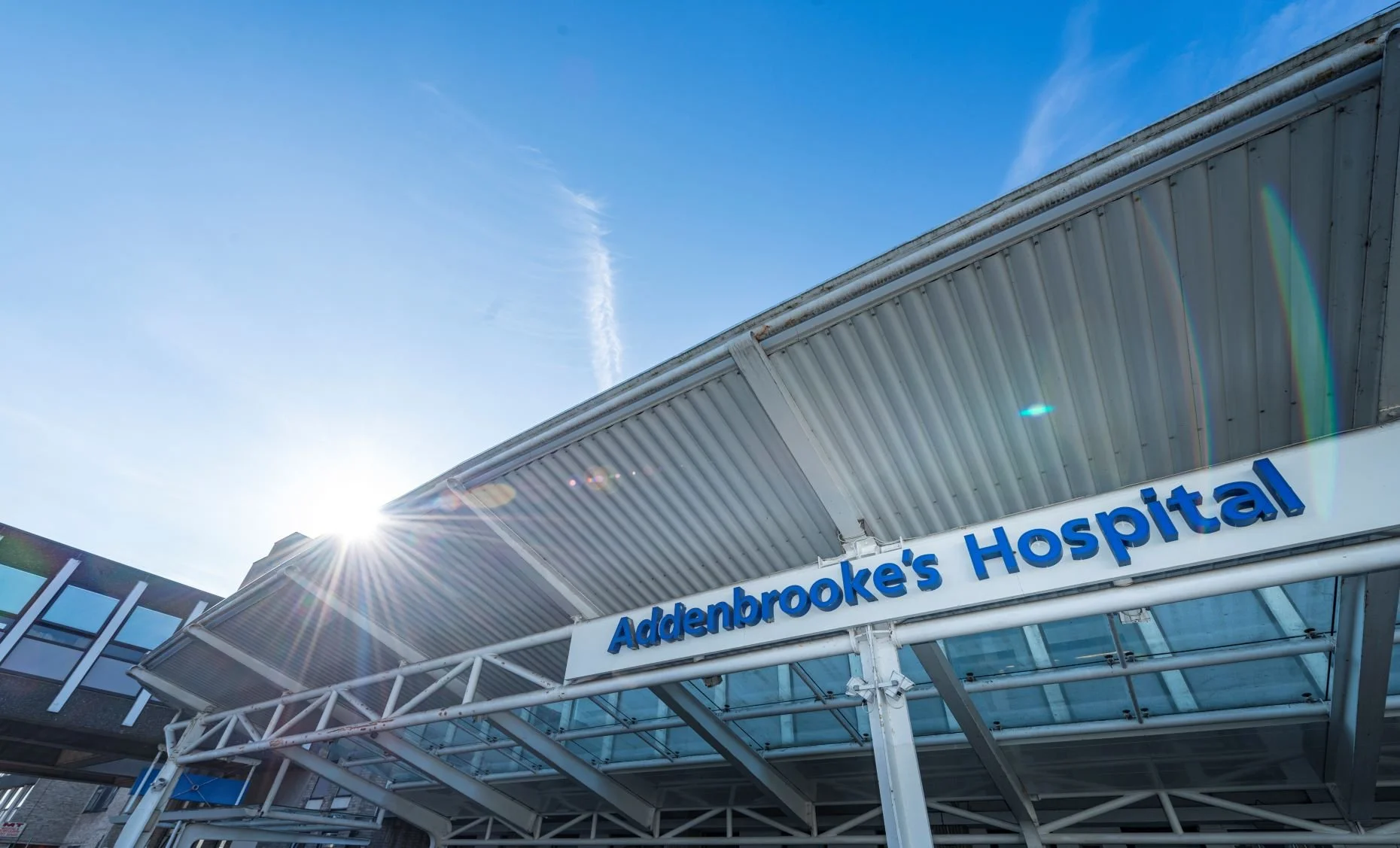CLUSTER
Cambridge Biomedical Campus
The Cambridge Biomedical Campus cluster is one of Europe’s strongest, home to global life sciences companies like AstraZeneca, GSK, and the University of Cambridge, three elite hospitals and investors—all fuelling advances in medicine, genomics, and healthcare innovation.
Its dense physical ecosystem drives £4.7bn annual GVA, rapidly turning breakthroughs into real-world impact and making it a magnet for global talent, startups, and scaling businesses.
Key Strengths & Focus Areas
Drug discovery (including antibody and genomics platforms)
Diagnostics and medical devices (early cancer and metabolic disease detection)Genomic medicine and sequencing (personalised medicine; Sanger sequencing legacy)
Clinical trials and translational research (phase I/II studies with rapid hospital integration)
Multidisciplinary innovation (AI, data science, engineering applied to biomedicine)
Healthcare and outcomes research (children’s health, mental health, transplantation science)
What makes this cluster special
Largest integrated academic, clinical, and commercial life sciences campus in Europe
Nobel Prize-winning research centres alongside patient clinics and industry
Unique proximity: ideas, investors, and trial participants are literally steps away
Cluster Map
Getting There
The Cambridge Biomedical Campus lies on Cambridge’s southern fringe, well connected by road, rail, and bus. It’s accessible from the M11 (junction 11) with clear signage. Regular bus services and the guided busway link the Campus to the city centre and Cambridge railway station, which remains around ten minutes away by public transport or car.
A new station — Cambridge South — is currently under construction on the Campus, adjacent to the guided busway and planned to serve the Biomedical Campus directly. Although originally slated to open in late 2025, the opening has now been deferred to early 2026. The new station will include step-free access, lifts, cycle parking, accessible toilets, and pedestrian links from both sides of the track.
Getting Around
Once on campus, getting around is straightforward thanks to clear signposting and pedestrian-friendly routes. The Campus has a mix of walking and cycling paths, with secure cycle parking available close to most buildings.
Maps and information points are located at main entrances to help visitors navigate. Many buildings are within a short walk of each other, and the design of the Campus encourages movement on foot, with accessible routes provided for wheelchair users and those with limited mobility.
Hospitals and Research Institutes
Hospitals
Addenbrooke’s Hospital
Cambridge’s flagship teaching hospital, central to the Biomedical Campus. It’s a hub for clinical trials, translational research, and specialist services ranging from oncology to transplantation, with close links to University of Cambridge departments.
Royal Papworth Hospital
Europe’s leading cardiothoracic hospital, pioneering heart and lung treatments. Known globally for its expertise in transplantation, it attracts international patients and fuels innovation in respiratory and cardiovascular medicine.
The Rosie Maternity Hospital
One of the UK’s most advanced maternity and neonatal centres. It combines specialist services in obstetrics, midwifery, and neonatal intensive care, making it a crucial partner for research in maternal and child health.
Cambridge Children’s Hospital (opening expected 2029)
A world-first integrating physical and mental healthcare for children and young people, with embedded research facilities. It’s set to redefine paediatric medicine and mental health innovation.
Research Institutes
University of Cambridge
The University of Cambridge (School of Clinical Medicine, Clinical Neurosciences, Psychiatry) is a global powerhouse for translational research, especially in cancer, neuroscience, psychiatry, and regenerative medicine. Many spin-outs and clinical trials originate from these divisions, with unique strengths in multidisciplinary collaboration—bringing together clinicians, mathematicians, physicists, engineers, and data scientists to solve health challenges. It is central in the Early Cancer Institute and paediatric health innovation (e.g., Cambridge Children's Hospital integrating physical and mental healthcare).
MRC Laboratory of Molecular Biology (LMB)
The LMB is home to 12 Nobel Prizes and historic discoveries such as Sanger DNA sequencing and monoclonal antibodies. It remains globally influential, regularly collaborating with pharma (notably AstraZeneca) and biotech startups, including spin-outs like Sortera Bio (rapid antibody drug discovery). The campus’s proximity enables LMB scientists to easily partner across disciplines, helping new therapies reach patients faster.
Wellcome-MRC Institute of Metabolic Science
This institute is a leader in combating obesity, diabetes, and metabolic diseases. Recent innovations include the artificial pancreas for diabetes patients, and their research shapes both clinical practice and public policy—often spawning biotech spin-outs and supporting national translational research infrastructure (eg, NIHR Cambridge BRC).
Milner Therapeutics Institute
The Milner Therapeutics Institute acts as a “bench-to-business” hub that tightly integrates academic research with industry collaboration. It hosts the Frame Shift bio-incubator, supporting 16+ startups and providing shared labs, tissue banks, and a high-contact environment for therapeutic innovation. The Milner’s central position accelerates spin-out formation, clinical translation, and fundraising for young biotechs.
Cambridge Stem Cell Institute
The Cambridge Stem Cell Institute drives leading research in stem cell biology, with direct applications in regenerative medicine, cancer, and blood disorders. It is recognized for world-first advances in developmental biology and tissue regeneration, producing impactful spin-outs in cell and gene therapies.
Cancer Research UK Cambridge Institute
A national leader in integrated cancer research, this centre unites laboratory science, clinical trials, hospital partnerships, patient networks, and industry. It plays a critical role in early detection, precision oncology, and the development of innovative cancer diagnostics and treatments. Major collaborations include partnerships with Abcam and AstraZeneca for research tool development and clinical translation.
Corporate Research + Business Bases
Abcam
Headquartered at the Cambridge Biomedical Campus, is a global leader in protein research tools and proteomics solutions. Abcam identifies, develops, and manufactures high-quality antibodies, proteins, ELISA kits, lysates, and cell engineering tools for life scientists in research, diagnostics, and drug discovery. The company collaborates with innovators worldwide, supporting over 2,000 collaborative projects, co-creating custom reagents, advancing new technologies like multiplex diagnostics, and partnering with startups and established platforms to accelerate scientific discovery. Through its open innovation model, technical expertise, and extensive antibody catalog, Abcam drives research in cancer, genomics, neuroscience, and more.
GlaxoSmithKline
GSK at Addenbrooke’s Hospital operates through its Experimental Medicine and Clinical Pharmacology Unit, focusing on translating cutting-edge biomedical research into new treatments. The strategic partnership with the University of Cambridge and Cambridge University Hospitals aims to accelerate drug discovery and development for diseases including brain trauma, cystic fibrosis, osteoarthritis, and chronic respiratory and kidney diseases.
With a £50 million five-year investment in the Cambridge-GSK Translational Immunology Collaboration (CG-TIC), GSK applies AI and clinical expertise to improve immune disease therapies. The close physical proximity to academic and clinical partners supports innovative clinical trials and rapid translation from lab to patient.
AstraZeneca
AstraZeneca’s Discovery Centre (DISC) is a cutting-edge global R&D facility housing over 2,200 scientists who focus on accelerating drug discovery and development. The DISC integrates advanced robotics, high-throughput screening, AI, and machine learning to fast-track research in precision medicines, including nucleotide-based, gene-editing, and cell therapies. Its interconnected laboratories foster collaboration across all therapy areas—oncology, respiratory, cardiovascular, and neuroscience—enabling cross-functional teams to quickly explore novel biology and design the next generation of therapeutics. The DISC supports over 200 partnerships with local academic institutions and biotech companies while maintaining more than 1,000 global collaborations, creating a vibrant ecosystem that drives innovation and productivity in medicine development.
AstraZeneca’s science at Cambridge is deeply integrated with the University of Cambridge, Addenbrooke’s Hospital, and other campus partners. This proximity allows seamless translational research, rapid clinical trial development, and co-creation of breakthrough treatments. Through programs like the Blue Sky Collaboration and the Functional Genomics Screening Laboratory, AstraZeneca embraces open innovation, partnering with startups, academic teams, and industry leaders. Together, they tackle complex diseases by combining expertise, data, and advanced technologies—accelerating the path from discovery to patient impact and contributing to breakthroughs in cancer, immunology, respiratory, and other therapeutic areas.
Plugging In to the Cluster
Networks + Events
Cambridge AI club for Bio medicine
The AI Club brings together the Biomedical AI and Machine Learning community in Cambridge, to discuss common themes and explore different topics and methodologies. The sessions open conversations to inform, inspire, and connect researchers at all levels, on topics within computational biology, AI and bioinformatics.
Cambridge Immunology Network
The Cambridge Immunology Network Seminar Series has been running since 1998, highlighting local, national and international research in immunology and is well received by researchers in both academia and industry.
The seminar series is a collaboration between the Cambridge Immunology Network and supported by the Cambridge Institute of Translational Immunology and Infectious Disease (CITIID).
Seminars take place weekly on Thursdays at 4pm and feature a leading speaker from the immunology field.
The weekly seminars are held in the Ground Floor Lecture Theatre, Jeffrey Cheah Biomedical Centre (JCBC), Puddicombe Way, Cambridge.
talks.cam.ac.uk/show/index/12848
Connect: Health Tech
Connect: Health Tech is the University of Cambridge’s Enterprise Zone for life sciences and medtech. Acting as a bridge between research, healthcare, and industry, it connects clinicians, scientists, entrepreneurs, and investors to drive innovation. Through its online community and partnerships, it offers access to funding, expertise, and collaboration opportunities. By linking Cambridge’s strengths in medicine and technology, Connect: Health Tech helps transform ideas into solutions with real-world healthcare impact.
Innovator Support
Bio-Incubator at The Milner Therapeutics Institute
The Milner Therapeutics Institute supports start-ups and SMEs through its bio-incubator, creating a collaborative environment where companies engage with academia, pharma, and fellow innovators. Focused on R&D-intensive businesses in functional genomics, early target discovery, and therapeutics, the incubator fosters entrepreneurship and growth. With hubs on the Cambridge Biomedical Campus and in the city centre, it provides space for companies to develop before securing funding and moving into independent laboratory facilities.
More enterprise support from The Milner:
Gravity (Cambridge Gravity)
Cambridge Gravity supports life-sciences researchers by offering mentorship, industry connections, entrepreneurial events, fellowships, and biotech matchmaking to spark industry-oriented careers. Cambridge Gravity
Founders Growth Community
A Cambridge initiative offering workshops, masterclasses, and discussions to support founders/CEOs through scale-up, commercialisation, education, and community development. Founders Growth Community
Cambridge NeuroWorks
Cambridge NeuroWorks brings together researchers, clinicians, engineers, and industry in neurotechnology, offering fellowships, funding, and collaborative brain-health innovation. Cambridge NeuroWorks
Cambridge University Health Partners
CUHP helps clinicians, researchers, investors, and industry partners accelerate innovation in life sciences and healthcare. Through its network, it connects people to resources, funding, and collaborations that turn ideas into real-world solutions.
Based on the Cambridge Biomedical Campus, CUHP unites the University of Cambridge, Cambridge University Hospitals, Royal Papworth Hospital, and Cambridgeshire & Peterborough NHS Foundation Trust. Positioned at the heart of this global hub, CUHP makes it easier for ideas, expertise, and partnerships to thrive.
https://cambridge-biomedical.com/
ideaSpace South
Nestled in the Clifford Allbutt Building at Cambridge Biomedical Campus, ideaSpace South offers a vibrant hub for health-tech, biotech and startup communities. It’s part of the three-site ideaSpace network and open to founders beyond just the University.
The Cambridge Biomedical Campus hosts a wide range of events, from scientific talks and networking sessions to community walks and wellness activities, bringing together researchers, clinicians, businesses, and the public.
“The Cambridge Biomedical Campus is the largest hub for medical research and health innovation in Europe – a unique ecosystem where NHS institutions, the country’s leading medical school. world-class researchers and global companies like AstraZeneca, Abcam and GSK come together to make discoveries and develop treatments and technologies that are saving lives and growing the UK economy. Our track record in discovery and innovation includes monoclonal antibodies, the Cytosponge early cancer test, the obesity gene, AI radiotherapy technology with Microsoft and whole genome breast cancer care.
”








